African Union denounces Trump's so-called deal of century
The African Union (AU) has condemned as “illegitimate” US President Donald Trump's so-called deal of the century on Israeli-Palestinian conflict, stressing that the plan is in sheer violation of the United Nations and the African body’s resolutions.
AU Commission Chairman Moussa Faki Mahamat said the remarks during the 33rd Ordinary Session of the Assembly of the Heads of State and the Government of the AU held in the African body’s headquarters in the Ethiopian capital Addis Ababa on Sunday.
The so-called plan represented the “umpteenth violation of multiple United Nations and African Union resolutions,” he said, expressing solidarity with “the Palestinian cause.”
Mahamat noted that Trump’s plan was prepared without international coordination, stressing that it “trampled on the rights of the Palestinian people”, a line that drew applause in the main hall of the AU’s headquarters.
Trump unveiled his much-delayed and self-proclaimed “deal of the century” during an event at the White House alongside Israeli Prime Minister Netanyahu in Washington on January 28.
All Palestinian groups have unanimously rejected the American president’s highly-provocative initiative that largely meets Israel’s demands in the decades-old conflict while creating a Palestinian state with limited control over its own security and borders.
It enshrines Jerusalem al-Quds as “Israel’s undivided capital” and allows the regime to annex settlements in the occupied West Bank and the Jordan Valley. The plan also denies the right of return of Palestinian refugees into their homeland, among other controversial terms.
Palestinian leaders had severed almost all ties with Washington in late 2017 after Trump controversially recognized Jerusalem al-Quds as the so-called “capital” of the Israeli regime.
Also at the summit on Sunday, Egyptian President Abdel Fattah al-Sisi, the outgoing AU chair, said that “the Palestinian cause will always be in the hearts and minds of the people of Africa.”
Sisi’s successor in the African Union, South African President Cyril Ramaphosa, for his part, compared the American president's plan to regulations in place during his country's apartheid period.
“As I listened to it and as I read everything that's written about it, it brought to mind the horrible history that we in South Africa have gone through,” he said.
Palestinian President Mahmoud Abbas, the head of the Palestinian Authority (PA), regularly attends the AU summits but on Sunday he was represented by Palestinian Prime Minister Mohammad Shtayyeh, who reiterated that the position held by Palestinian leaders is that the so-called plan “has no legitimacy whatsoever.”
Apart from the Palestinian leaders, who have boycotted Trump’s administration over its rigid pro-Israel stance, many other international organizations, including the European Union (EU) and the Organization of Islamic Cooperation (OIC), have already rejected the “deal of the century.”
On Saturday, the Arab Inter-Parliamentary Union (AIU) also reiterated its absolute rejection of the so-called peace plan.
Representatives of 20 Arab parliaments participated in an emergency AIU meeting titled “Supporting the Palestinians in their Just Cause” in the Jordanian capital Amman to discuss the implications of the controversial US plan.
In their final communiqué, the top Arab parliamentarians vehemently rejected any unfair or unilateral solution that does not fulfill the Palestinian people’s inalienable rights, chief among them is the right to establish an independent state, with Jerusalem al-Quds as its capital.
Trump’s plan has already triggered waves of protest rallies both across the Palestinian occupied territories and around the globe.

Moroccans blast Trump’s plan
Also on Sunday, thousands of people, including local politicians, took to the streets of the Moroccan capital Rabat to express their strong dissent against Trump’s plan.
Carrying Palestinian flags and chanting “Long Live Palestine” and “Palestine is not for sale”, the protesters condemned the American leaders as the “enemies of peace.”
The Moroccan demonstrators called for a boycott of American products and warned Rabat against any attempt “to normalize” ties with Tel Aviv. Some protesters, who wore red-black-green-white scarves in the colors of the Palestinian flag, torched an Israeli flag.
The African country has warming but quiet relations with the Israeli regime, although they do not enjoy formal diplomatic ties.
1,000 strategic drones officially join combat units of Iranian Army
VIDEO | Germany, not just merely an economic recession
Discover Iran: Hormozgan, home to the last lenj boatbuilders of Persian Gulf
VIDEO | Condition of Gaza hospitals at the beginning of phase two recovery
VIDEO | Tehran metro station vandalized in attack by foreign-backed terrorists
VIDEO | Angry Iraqis set fire to Trump image, US flag
'It's simple — Trump's failing': Netizens rip into US warmongering against Iran
ICE shooting of protester in Minnesota




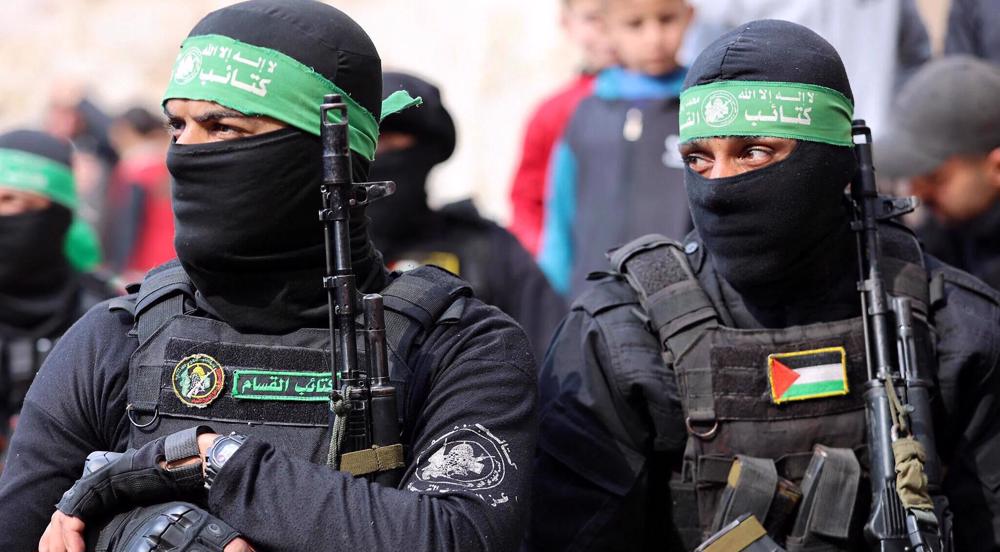
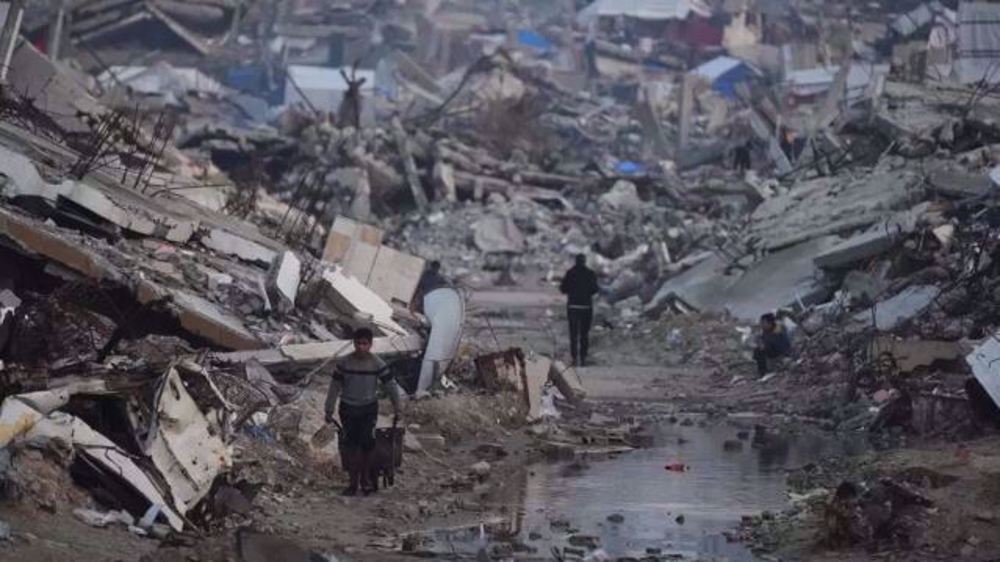
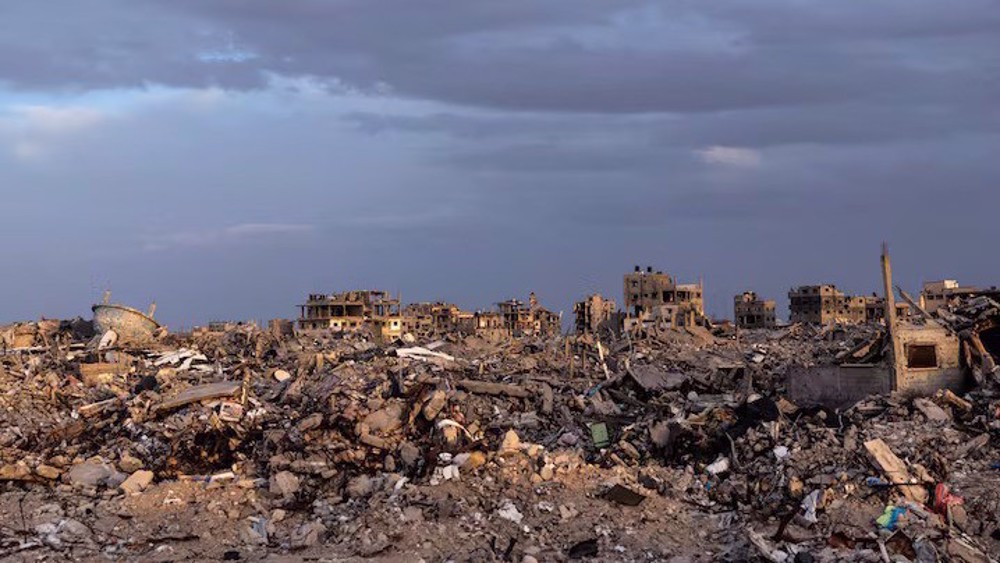



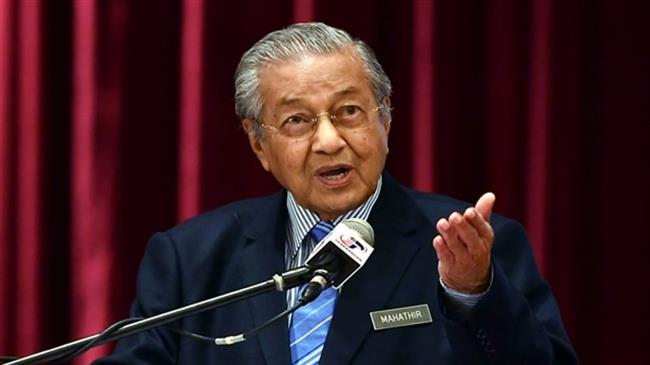
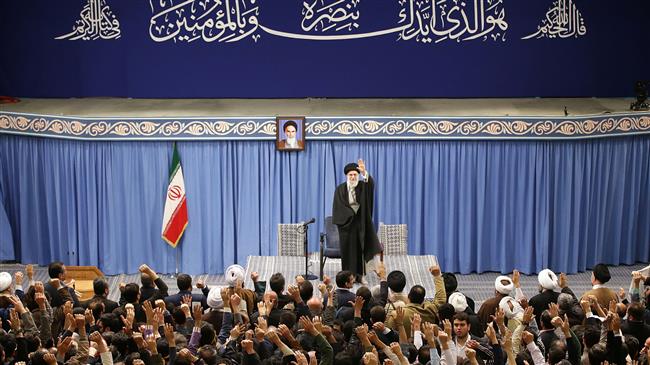
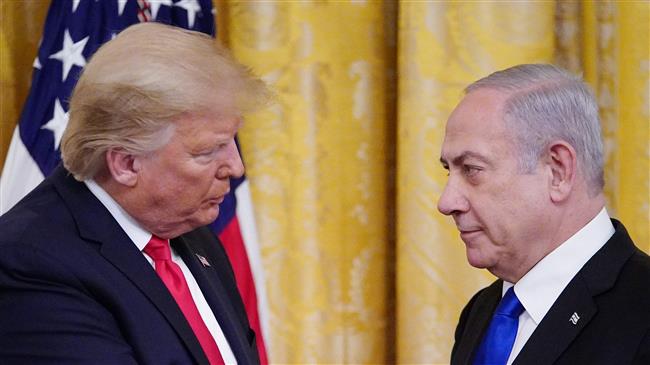
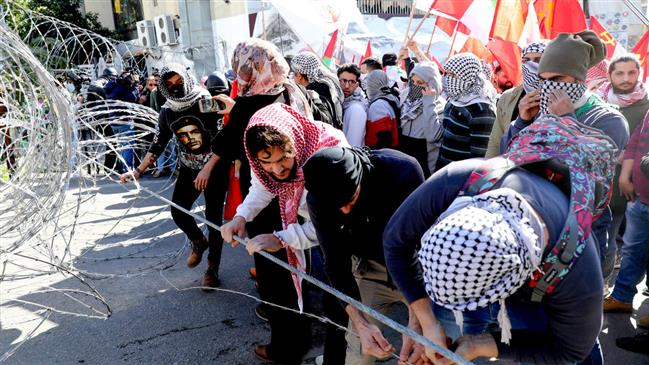
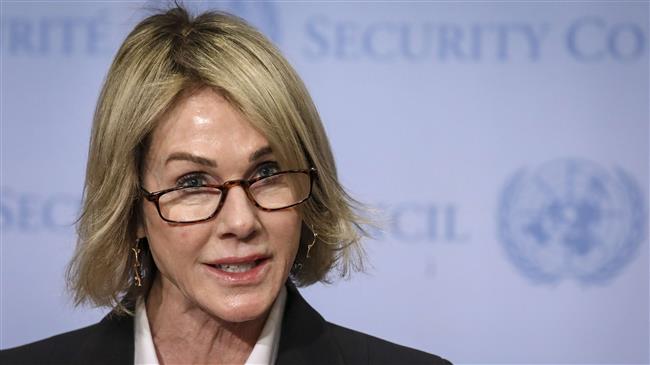

 This makes it easy to access the Press TV website
This makes it easy to access the Press TV website